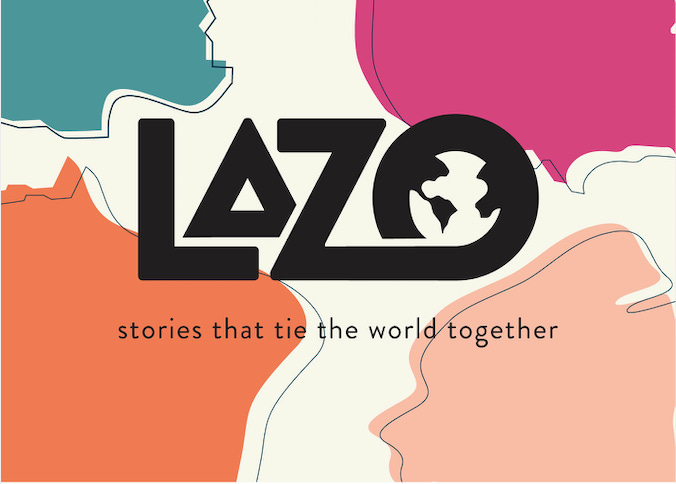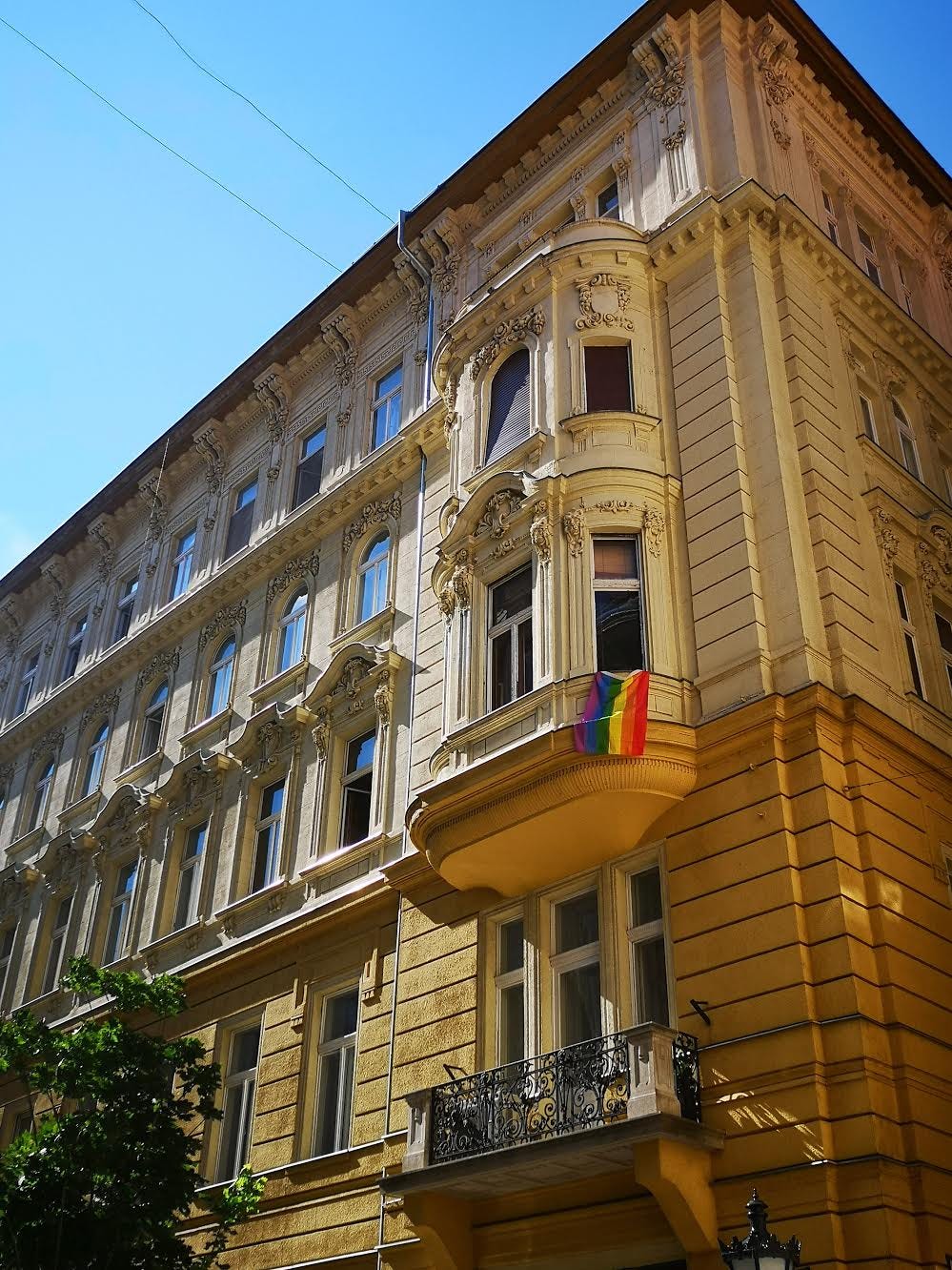Hungary in focus (but not Tucker).
Cristina here! This week we'll be talking about Hungary, but I'm not going to wade deep into Tucker Carlson's decision to rub elbows with Hungarian Prime Minister Viktor Orbán or make a documentary about the country. Plenty of others are doing that.
I will mention that Orbán's government paid Washington D.C. lobbyists over $200K in 2019, and part of their agreement was to have Hungary's Foreign Minister appear on Carlson's show.
Orbán is a far-right, anti-immigrant, authoritarian leader who has eroded the rule of law in his country, and ideologues like Tucker Carlon and Steve Bannon see him as a model for governing the United States. Orbán's relationship with Carlson also lends him some credibility on the international stage even as he is at loggerheads with the European Union over European values and the rule of law. This is a symbiotic relationship with financial incentives. It's that simple. So I will leave it at that.
Instead, we'll be talking to Erdei Zsolt, the CEO and founder of Humen Media, an LGTBQ media company based in Hungary's capital Budapest. We discussed the recent passage of an anti-LGTBQ law in Hungary and how it has affected his work.
He kindly spoke to me while on vacation in Malta.
BACKGROUND: Hungary recently implemented a law banning the dissemination of content portraying homosexuality to people under 18. The law is allegedly meant to protect children, but critics say it's homophobic and equates homosexuality with pedophilia.
The European Commission has already launched infringement proceedings against the law. Orbán says he plans to hold a referendum on it.
Meanwhile, on July 24, Hungary's gay pride parade attracted tens of thousands of participants.
This interview has been lightly edited for clarity.
Cristina: Can you tell me a bit about Humen Media Group?
Erdei: We started the business in 2011. We started with a print LGTBQ magazine called Humen Magazine. It's a lifestyle and culture magazine, but it's not only for LGTBQ people. We want Humen Magazine to be an LGTBQ magazine for everyone.
We also organized an LGTBQ cultural festival in Budapest. We show movies, photo exhibitions, contemporary art, theatre performances, and we organized parties. We also have pink marketing initiatives, and we talk about marketing and communications strategies for LGTBQ people.
We have around 15 full-time staff, and we work with freelancers.
Cristina: Some people might look at the new LGTBQ law and think Hungary is a homophobic country. Is there a lot of visibility and acceptance of the LGTBQ community in Hungary? Is it safe for people to be out of the closet and organizing LGTBQ events?
Erdei: Yes. There is one gay club in Budapest. There are a few bars. We host parties at straight clubs. It's very safe. Hungarian people are open, and they are different from the government.
Next year we will have elections. This government needs a scapegoat. First, they started attacking [Hungarian-born billionaire] George Soros; then, they began attacking migrants. Now they've turned to LGTBQ people.
They started this campaign attacking LGTBQ people last year with a trans law (Hungary banned the legal recognition of transgender citizens last year). Now they are using this law about children and pedophilia. It's a nightmare, but they need a scapegoat.
The problem is, in Hungary, people don't know George Soros. They've never even seen a migrant. But they know LGBTQ people because they have friends or an LGBTQ son or daughter. It's different. I don't think the government realized that LGBTQ people are real.
The issue is also that the opposition parties are stronger and more unified now. But among the opposition is the right-wing party Jobbik. They don't like LGTBQ topics, and Orbán's party Fidesz wanted to drive a wedge between the opposition parties so they wouldn't unite against him. So that is one of the biggest reasons, I think, that they are proposing this law.
Cristina: So, you think it's more difficult for the government to generate support for this law because people have more personal connections with LGBTQ people than they do with other scapegoats?
Erdei: Yes. For example, before this law was passed, so many people posted on Facebook and Instagram to support the LGTBQ people in Hungary. Also, so many straight friends called or texted me about this law and said they support us.
In a way, it's been good, because now we can see that we're not alone.
I am worried about the younger generation. They cannot get information now about LGTBQ people or their lifestyle. That will make it harder for them to accept themselves or come out.
Cristina: How is the law being enforced?
Erdei: We don't have guidelines for this law. We don't know how to implement it, so nobody is implementing it. For example, in our magazine, I think we need to write on the cover that it's adult-only content. But we don't do that.
On our website, I think we have to use some filters to ask people if they are 18 or older before they access the site. But we don't do that either.
I checked on social media and other online platforms, and no one is doing these things.
Cristina: Have you experienced any backlash against your work from Fidesz supporters?
Erdei: I'll tell you a story that is just from yesterday. We rent an office in downtown Budapest. We put a rainbow flag in the window, and we received a letter yesterday from some of the neighbors. The letter said they didn't like the rainbow flag hanging in front of the building because we are proud Hungarians, and only the Hungarian flag should hang.
So today, we bought a Hungarian and a European Union flag and hung those as well.
We've never had problems with the neighbors before. But I think the law has emboldened some homophobic people. They think they can do whatever they want now. After the law was passed, our Facebook page saw a lot more homophobic comments. There are still more supportive comments than homophobic comments, though.
Cristina: Why do you think gay pride was so big in Hungary this year?
Erdei: Because this year's pride was a big demonstration. So many straight people went there to support us. I think it will be even bigger next year. There is a lot of support from people in Hungary.
Cristina: Is there any support the Hungarian LGTBQ community would like to see from the European Union or the wider international community?
Erdei: I talk to my friends in Europe. I have friends in the LGBTQ media around Europe, and I attended the Madrid pride parade at the end of June. I gave a speech there. I realized when I spoke with my friends, and I spoke in Madrid, they don't understand the real situation in Hungary.
Someone told me that he doesn't want to go to Hungry because it's a homophobic country. So I said to him: 'You came to Budapest two years ago. Do you think everything is different now?'
Yes, we have a really bad law. But we're not alone, because so many people support us.
What I'm reading:
• Germany's Christian Schmidt has taken over as the United Nations High Representative for Bosnia and Hercegovina.
• The heads of foreign affairs committees in the national legislatures of the U.S., U.K., Czech Republic, Estonia, Ireland, Latvia, Lithuania, Poland, and Ukraine issued a joint statement opposing the NordStream2 pipeline.
• Poland's Deputy Justice Minister Marcin Romanowski slammed Germany's justice system, accusing it of "anti-freedom tendencies," after a Polish theologian received a fine for hate speech in Germany. The theologian, Dariusz Oko, published an article in a German magazine calling gay priests “a colony of parasites,” a “cancer,” and a “plague.” Politico Europe has a report on the incident.
• Poland's Justice Minister asked the country's Constitutional Tribunal to examine whether an article of the European Convention on Human Rights breaches the Polish constitution.
• Arminka Helić, a member of the British House of Lords, wrote an opinion piece for Politico arguing that the language Ethiopian Prime Minister Abiy Ahmed recently used to describe Tigrayan Ethiopians is similar to the language used before ethnic cleansing and genocide in Yugoslavia.
• Amnesty International and a handful of other NGOs are calling on Croatia to release more details about plans to monitor the border crossing from Bosnia. "Croatia’s recently announced border monitoring mechanism, meant to provide for independent human rights monitoring of border operations, appears to fall short of the standards needed to ensure its effectiveness and success," the organizations wrote.
• Police in Ukraine opened a murder investigation after finding a Belarussian activist hanged near his home in Kyiv. Vital Shyshou worked for an NGO that helps Belarusians fleeing persecution by strongman Alyaksandr Lukashenka's regime.
• For the Atlantic Council, Brian Whitmore argues that Shyshou's death fuels fear of Lukashenka's death squads.
• The OSCE announced that it would not send observers to Russia's parliamentary elections in September or the first time since 1993 because of “limitations imposed by Russian Federation authorities on the election observation.”
• Israel's Supreme Court offered the Palestinian residents of East Jerusalem's Sheikh Jarrah neighborhood “protected status” that will prevent their expulsion from their homes in the “coming years," Haaretz reports.
As always, send questions, complaints, corrections, whatever, to c.maza@protonmail.com






